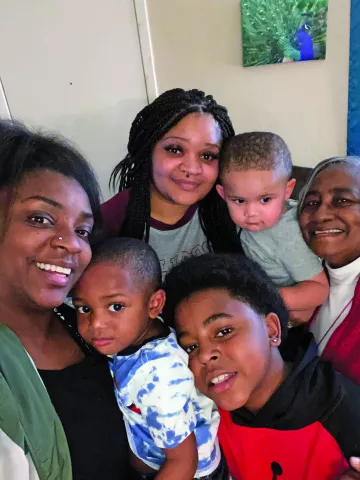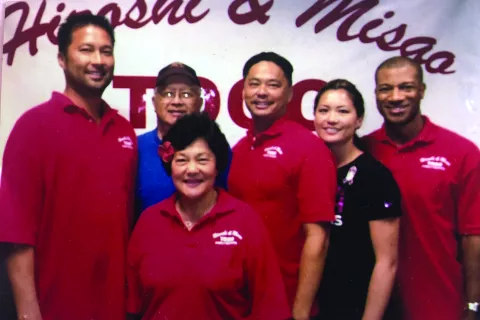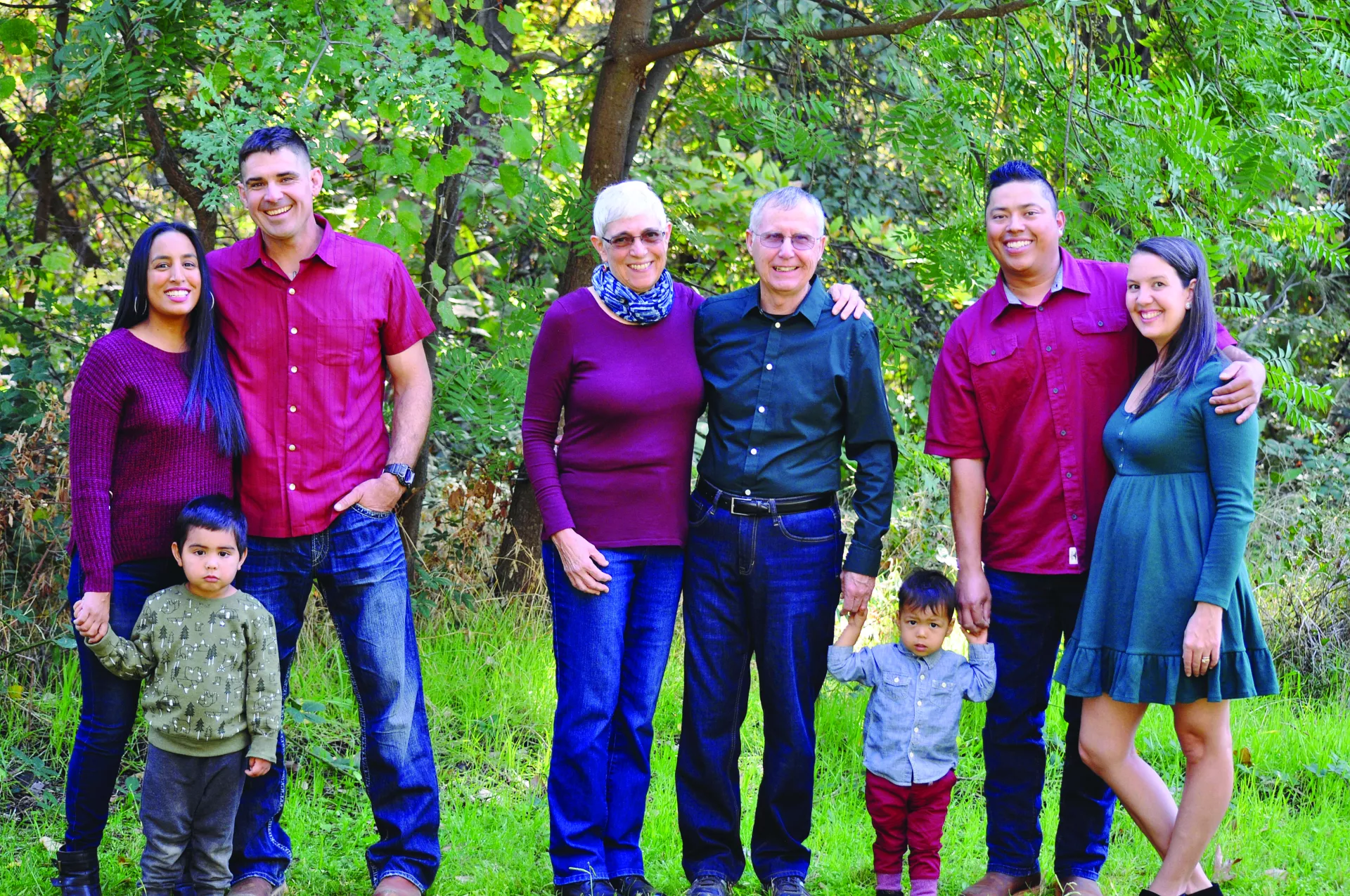Pauline George is planning to hold a regular Zoom meeting for 15 very significant people, and it may continue well beyond this summer, even as COVID-19 restrictions subside.
The agenda will be a bedtime story and the invitees will be her grandchildren. They’ll all meet virtually a few times a month to continue the frequent online contact she had with them as the pandemic wore on.
“We had a tradition where my grandmother read to the children, and I’ve continued it, though it’s been difficult during the pandemic,” says the retired teacher from Alabama, who is president of the Montgomery Education Retirees Association. “This just seems like a great way to establish a new tradition.”
George, who was stricken with COVID-19 for two months over the winter, says the story time will allow her to visit with the children and help them connect with each other.
Like George, many retirees have made sacri- ficesd uring the pandemic—especially in visits with family. But the skills and resourcefulness that NEA-Retired members developed during their careers have helped them find meaningful ways to connect with loved ones. And they may hang on to these new traditions, even as the pandemic subsides.

Following the science
As more people become vaccinated, health experts are urging older adults to proceed with caution. Uncertainty still exists about whether people who are vaccinated can acquire and transmit the virus and whether vaccines will work against new variants, says expert Chris Beyrer, of the Johns Hopkins Bloomberg School of Public Health.
He recommends following the guidance of public health officials, but also believes there are important reasons for some restrictions to be eased.
“Everyone has to make their own decisions based on the CDC [Centers for Disease Control and Prevention] guidance,” he says. “However, it won’t be helpful if the message suggests that we should be as careful as we were at the height of the pandemic. These vaccines are remarkably effective, and people want to hug their grandkids.”
Brea Perry, a sociologist from the University of Indiana who has been studying the effects of the pandemic on older people, says even brief visits online or socially distanced can keep older people and children from feeling isolated or suffering emotionally.
“People get caught up in thinking it has to be an hourlong conversation and a very meaningful interaction. But really just touching base is often fine,” she says. “Feeling confident about support is critical.”
She notes that some people—especially children—may even find long or probing conver- sations off-putting or stressful and will seek to avoid them.
“Saying hello and making funny faces or something is often enough,” Perry adds. “The message is: I’m still here and care about you.”

Connecting safely with grandchildren
For many older Americans, not being able to see their grandchildren has been difficult emotionally. But retired teachers James Burfeind and his wife, Deborah, were among the many educators who found enriching ways to spend time with their grandchildren.
Before the pandemic, the Chico, Calif., couple had been helping their two adult children with child care a few hours a day. But when the pandemic hit, they had to make some changes.
“We said the [children] would have to eliminate social gatherings and be extremely careful about always wearing a mask if we were to continue babysitting,” says Burfeind, who is president of the Chico California Teachers Association/NEA-Retired.
And the visits took on a different tenor when the couple began to entertain the children at home all the time. A driveway basketball hoop became a repeated source of exercise, and one particular couch became a comfortable center for reading with the children.
As restrictions have eased, the grandchildren still crawl onto that couch with a book and use the basketball hoop rather than other options for play.
“They are nice routines,” Burfeind says. “I’m not sure if things like this would have had the same significance if we had not been staying close to home together.”
Playing and learning from afar
Not everyone is lucky enough to live so close to their grandchildren. NEA-Retired Vice President Jean Dobashi has a big family near where she lives on Kauai Island, in Hawaii, but her daughter and 3-year-old grandson live some 5,000 miles away in Florida.
In a normal year, Dobashi would visit Florida frequently, but she has actually spent more time with her long-distance grandson during the pandemic, even if a computer screen and telephone pale in comparison to in-person visits.
Dobashi’s 34 years of teaching experience came in handy as the two played games together and Dobashi taught her grandson about Hawaii. She even taught him how to play the ukulele and to make the shaka sign—a Hawaiian hand signal that means “hang loose.”
“He wants to talk to Grandma Jean sometimes twice a day,” Dobashi says. “He shows me every toy he has, all the books he has been reading, and all the craft projects he is making.”
Drawing on her skills as an educator, Dobashi started mailing math and reading worksheets to her grandson. When he completes them, his parents mail the worksheets back so he and Grandma Jean can go over them on Zoom.
“They are covering my wall,” Dobashi says. “I tell him that one day I will have to take it all down, but he says I can’t, because when we Zoom they are a familiar background.”
Dobashi is looking forward to attending an annual family reunion this summer that was canceled last year, but she treasures the time the pandemic has given her with her grandson who lives so far away.

Putting teaching skills to use
As the pandemic swept through the U.S. and spiked wildly in Arizona, Ann Myers hunkered down in her hometown of Scottsdale. One daughter delivered groceries to her, and, for a while, Myers only saw her grandchildren through a car window.
“We were afraid to meet together and hug. It was so painful to have one grandchild step away from me and keep her distance,” says Myers, who was a K–6 teacher for 33 years and is a member of the Arizona Education Association-Retired. “Gradually, though, we realized that we were in a quarantine bubble, and life for our families somewhat returned to normal.”
When school buildings closed, the educators in the family took charge. One daughter, who is also a teacher, worked on reading and language arts with her first-grade twins. Myers brought the kids to her house to study math, and her sister, a retired music teacher, offered them music instruction. Two older grand- children received hybrid instruction from their school, but also tapped into the family’s teaching expertise when they needed help.
“It was fun to set up my classroom again,” Myers says, noting that she valued the time with the grandchildren and believes it developed their relationship differently. “Teaching them has been a pleasure and an honor that I would not have had in normal times. Their memories will dim, but that time with us will be part of their lives. When I said 2020 had been terrible, my granddaughter said, ‘What? I loved this year.’”
Appreciating family even more
For Emma Shepard, a retired technology teacher from Shreveport, La., and president of the Louisiana Retired Teachers Association, the pandemic has been tragic. She lost a close friend of 20 years to COVID-19 last spring, and the isolation has been very difficult for her and her close-knit family.
She has kept busy with a wide range of community service projects and eventually found ways to get together safely with her 16 grandchildren and great- grandchildren by reading to them and giving them books as presents.
“It was very difficult to deal with that. I was very involved with them and haven’t had as much opportunity,” Shepard says. “I can hardly wait for all the hugs. I know I’ll appreciate that even more now.”
Her family has also missed their frequent gatherings, so one developed a plan for a summer get-together with about 25 people. They hope by then they will be able to celebrate the ebbing of the pandemic.
“In July, it will be my late mother’s birthday. She would have been 100 this summer, and there are a lot of other July birthdays,” Shepard says. “There are going to be speeches and activities, and we are having T-shirts made. I hope that becomes a tradition.”
George, too, says that despite Zoom sessions with nearly 30 family members, she was very sad when a 40-year fall tradition of traveling to see family in California and Arizona had to be canceled.
When she was stricken with the disease in January, family members helped with every aspect of her care, even dropping off food. Once George was well, one son from Virginia surprised her with an in-person visit.
“My family has just been wonderful, and I know I’ll always have a greater appreciation for them now,” George says. “I had to work on staying healthy mentally, then physically to get over the disease. Now I just want to enjoy things getting back to normal.”



